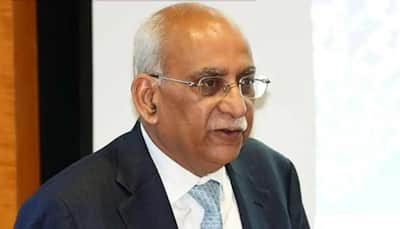Amid the escalating tension with Pakistan following the Pahalgam terror attack, the Union Government has reportedly revamped the National Security Advisory Board (NSAB). The NSAB advises the National Security Council Secretariat with inputs related to national security. If reports are to be believed, former R&AW chief Alok Joshi has been appointed as the Chairman of the NSAB.
The other members appointed to the board are former Southern Army Commander Lt Gen A K Singh, former Western Air Commander Air Marshal PM Sinha, Rear Admiral (retd) Monty Khanna, former diplomat B. Venkatesh Varma and retired IPS Rajiv Ranjan Verma.
Alok Joshi, a former chief of the Research and Analysis Wing (RAW), has been appointed as the head of the National Security Advisory Board (NSAB). A native of Lucknow, Joshi holds a postgraduate degree in political science from Jawaharlal Nehru University (JNU). He joined the Indian Police Service (IPS) in 1976, serving in the Haryana cadre. Over the years, he climbed the ranks, becoming Joint Director of the Intelligence Bureau (IB) in 2005. In 2010, he was appointed Special Secretary at RAW, and two years later, in 2012, he assumed the position of RAW Secretary.
The Union government has revamped the National Security Advisory Board (NSAB). Besides the former army personnel, RR Verma and Manmohan Singh are the two retired members of the Indian Police Service. B Venkatesh Varma is a retired IFS officer in the seven-member board.
The decision follows the recent terrorist attack in Pahalgam, which claimed the lives of 26 civilians—including one Nepali national—and left many others injured. In response, Prime Minister Narendra Modi convened a meeting of the Cabinet Committee on Security (CCS) at his residence, which concluded this afternoon.
In addition to the CCS meeting, the Prime Minister also chaired meetings of the Cabinet Committee on Political Affairs (CCPA) and the Cabinet Committee on Economic Affairs (CCEA). A second CCS session focused specifically on reviewing the country’s security preparedness in the wake of the Pahalgam attack.
The CCS had last met on April 23, receiving a detailed briefing on the incident. The briefing highlighted cross-border links to the attack, which occurred amid peaceful elections in the Union Territory and ongoing strides in economic development.
In a firm response to Pakistan’s alleged support for cross-border terrorism, the government announced a set of measures, including the suspension of the Indus Water Treaty.
Stay informed on all the , real-time updates, and follow all the important headlines in and on Zee News.








